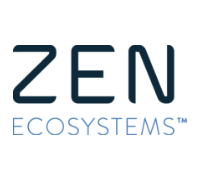In a global and connected entertainment market, copyright issues are becoming increasingly important. Ahead of his keynote at Broadband and TV Connect Asia (12th-13th May 2015, Suntec, Singapore), copyright expert Yew Kuin Cheah explains some of the recent legal developments addressing digital copyright challenges in Singapore and beyond.
IP&TV News: Could you explain your professional background in the area of copyright for us please?
Yew Kuin Cheah: I am currently a Local Principal in the Intellectual Property Practice Group at Baker & McKenzie.Wong & Leow in Singapore. The area of copyright law is one which holds particular interest for me as I have always been drawn to the interaction between law and technology, and this is one area where the application of existing laws is constantly being tested by the development of new technologies. In addition, I have written several articles on copyright issues.
Thanks. I wonder if you could give our readers an overview on the recent amendments to Singapore’s Copyright Act and how they affect ISPs?
The recent amendments to the Copyright Act allow right holders to seek court orders to disable access to sites that flagrantly infringe copyright or pirate websites. A right holder may apply to the High Court for a blocking order directing an ISP to prevent access to a flagrantly infringing online location.
The right holder in this case has to satisfy the court that: (a) the ISP’s services have been or are being used to access an online location to commit or facilitate infringement of the plaintiff’s material; and (b) the online location is a flagrantly infringing online location. The court will evaluate the case and decide whether to grant the blocking order. The ISP in question will be obliged to take the appropriate steps to block access to the offending sites. While the legislation does not mandate the specific technical steps which must be taken, it will fall upon the ISP to propose reasonable steps which would be effective, whilst at the same time are not too onerous for them to implement.
What other effects could this have on OTT and IPTV consumption in the region?
The site blocking provisions will impact websites which are in blatant breach of copyright. This excludes sites that offer primarily legitimate digital content, legitimate business services such as cloud storage services, search engines such as Google, or social media sites such as Facebook. The site blocking measures are not intended to hinder access to and the exchange of legitimate content, and therefore legitimate OTT and IPTV content is unlikely to be affected.
What do you think the next big battlegrounds will be in Asia for copyright, and how do you expect things to develop over the next few years?
The use of VPN in getting around geo-blocks is raising many copyright concerns. For example, consumers are using VPN to download/stream content from overseas websites where they do not have permission from the copyright owner to download/stream the materials in that country. Also, by using VPN to gain access to protected materials, there may be potential circumvention of digital rights management systems protecting the materials and/or breach of website terms of services.
Moving forward, copyright laws will need to constantly evolve to address new uses and new technologies. It is always going to be a delicate balance to provide sufficient protection to incentivise the creation of new content on the one hand, while at the same time allowing the development of new technologies to enhance the ways through which such content can be accessed.
As such, what conversations are you looking forward to having at this year’s TV Connect Asia?
While copyright laws have been in place for decades, they are now – more than ever before – being challenged and tested by the onset of new technologies.
The conversations that remain important are those about having an awareness of the basic premise of copyright protection, i.e. to incentivise the investment of time and money into the creation of new content, and to hence drive innovation within such an existing framework such that both content developers and content consumers would benefit.
Yew Kuin Cheah will be appearing at Broadband and TV Connect Asia (12th-13th May 2015, Suntec, Singapore)
Submitted by Broadband and TV Connect Asia event organizers.
Next: Parks Associates Welcomes Lowe's as CONNECTIONS Silver Sponsor
Previous: Where Next for Connected Entertainment in Asia?















